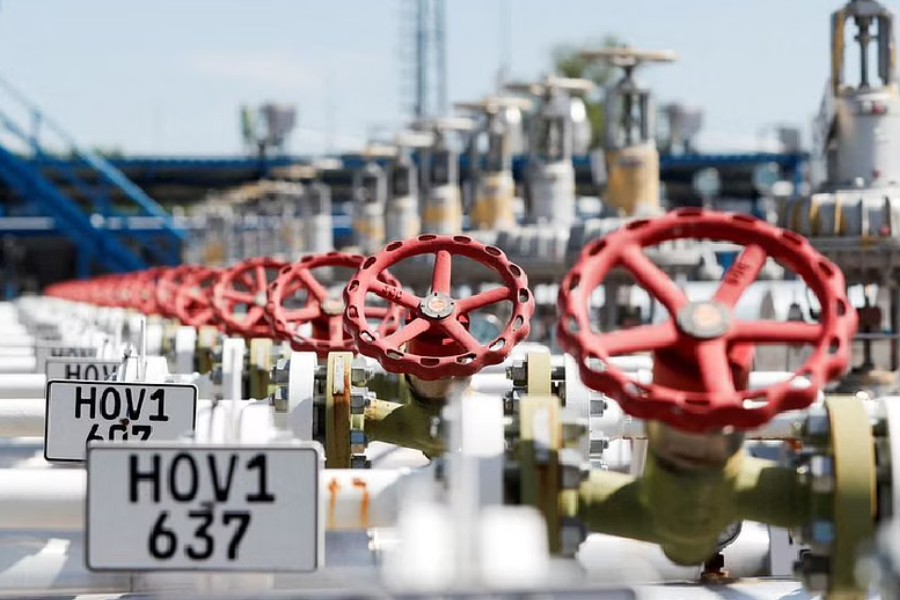A proposed European price cap on Russian gas goes against European and Hungarian interests, Hungarian Foreign Minister Peter Szijjarto said on Friday, ahead of an emergency meeting of European Union energy ministers.
Szijjarto, who met his Russian counterpart Sergei Lavrov in Moscow in July, seeking 700 million cubic metres of gas on top of an existing long-term supply deal, said the proposed price cap would trigger an immediate cut-off in supplies to Europe.
Gazprom started to ramp up supplies to Hungary last month, adding to previously agreed deliveries via the Turkstream pipeline. Russia supplies Hungary with most of its oil and gas needs.
EU energy ministers are set to discuss on Friday ways to tame energy prices, which have surged as Russia has halted most gas flows to Europe in response to European sanctions over Russia's invasion of Ukraine.
"The plan that would impose a price cap exclusively on Russian gas coming via pipelines is entirely against European and Hungarian interests," Szijjarto said in a Facebook video.
"If price restrictions were to be imposed exclusively on Russian gas, that would evidently lead to an immediate cut-off in Russian gas supplies. It does not take a Nobel Prize to recognise that," he said.
The Czech Republic, which is helping guide discussions as holders of the EU's rotating presidency, has said it wanted to remove capping Russian gas prices from the agenda of the meeting.
"This morning ... we will do our utmost to make Brussels finally understand that gas supplies are not an ideological or political issue, but one of hardcore physical reality," Szijjarto said.
Under a deal signed last year, before the start of the war in neighbouring Ukraine, Hungary receives 3.5 billion cubic metres (bcm) of gas per year via Bulgaria and Serbia under a long-term deal with Russia and a further 1 bcm via a pipeline from Austria. The agreement with Gazprom is for 15 years.
Hungary has sharply criticised EU sanctions on Russia over its invasion of neighbouring Ukraine, saying the moves have failed to weaken Moscow meaningfully, while they risked destroying the European economy.


